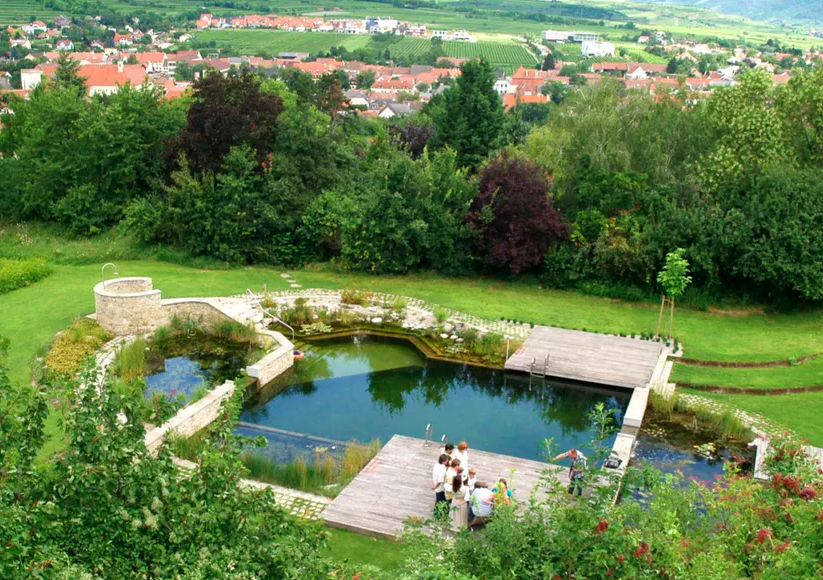|
Summer is a season best spent outdoors—and preferably by the water. But conventional pools are laden with chlorine, which smells nasty and can irritate eyes and damage hair. Fortunately, there's a growing trend towards natural swimming pools, which are treated with aquatic plants and other biological filters instead of chemicals. These chlorine-free pools offer a serene back-to-nature experience that's hard to beat. Check out the pros & cons of natural pools at the end of the post. Having completed nearly 70 biologically filtered pools across Australia, Natural Swimming Pools Australia was recently commissioned to convert an existing chlorine pool into a natural pool for a large homestead at the iconic Detroit Station in New South Wales. The team converted the pool just in time for the visit of Prince Charles and Camilla Parker Bowles. The natural pool trend began in Europe several decades ago. Since then, they’ve been slowly gaining popularity in the United States, Australia, and other regions with sunny climates. Unlike a traditionally rectangular, chlorine-filled swimming pool, a natural pool is often designed to imitate pools, ponds, or other bodies of water in the wild—they can have irregular shapes, along with rocks, waterfalls, and boulders. Naturally, not every pool built to look like a natural body of water with realistic rocks and boulders is a natural pool.
Unlike most sparkling blue swimming pools, natural swimming pools or ponds (NSPs) are filtered organically rather than by chemicals. Another pool called a regeneration zone is built nearby, which is where the water enters either a gravel filter or a constructed wetlands made of plants that clean the water. This resembles the process by which aquatic plants clean ponds in nature and results in a pool no less clean than one with chemically filtered water. The natural pool and its regeneration zone actually build a small ecosystem that changes over time, and animals or insects often are attracted to the zone (but not the pool, thankfully—it doesn’t contain the environment they’re looking for). These organic ponds are gaining popularity across the U.S., but there are some pros and cons that you should carefully consider before deciding to install a natural rather than a conventional pool: Pros
0 Comments
Leave a Reply. |
AuthorAndrew Starkman Archives
May 2024
Categories |
Proudly powered by Weebly


 RSS Feed
RSS Feed